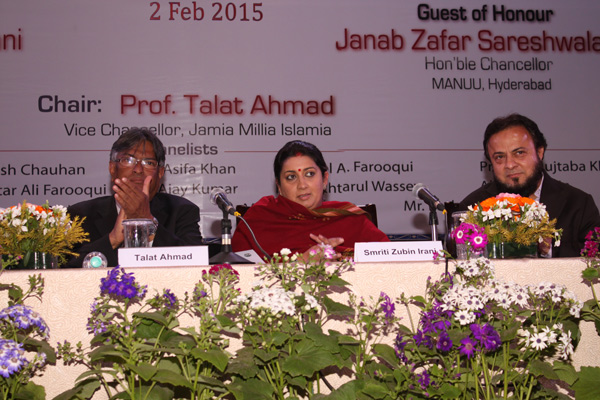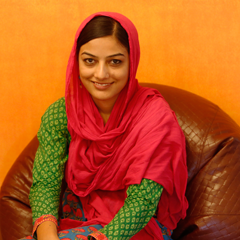
Jamia Millia Islamia has invited Prime Minister Narendra Modi to attend the university's annual convocation ceremony as its chief guest. A number of students have protested the invitation in view of Modi's comments in 2008 - where he called the university a breeding ground for terrorists after the then JMI VC Mushirul Hasan announced legal aid to two of its students arrested for suspected terror links in the Batla House encounter.
Some alumni have written to the Vice-Chancellor asking that the invitation be withdrawn. A number of reactions have also been pouring down on social media.
The wounds have not healed
Alumni members have demanded an apology from the PM for his "malicious and incorrect statement" before he attends the convocation. While the invitation has not received any response from the PMO, it appears that the general mood of the campus is that the PM would be welcomed if he apologises for his remarks.
Mujaheed Khan, a student of Masters in technology said: "How can you expect him to do so? He has never done it for the Gujarat pogrom. Even if he does, he will never mean it, so there is no point of demanding an apology."
Catch also spoke to Afroz Alam Sahil, a journalist who was a part of the university during the Batla House encounter. "One should not forget about the damage which statements like Modi's caused to the reputation the university which was already battling a dark phase. The University has no role in the encounter yet it was held responsible. I remember guardians calling back their lads from studies after a media scare," he recalled.
He clarified that the statement made by the then Vice-Chancellor Mushirul Hasan was to address the feeling of insecurity among the students. "The announcement for legal aid after the encounter was made from the students welfare fund but leaders like Modi misconstrued it by saying that the university was using government funds to aid terrorists," Sahil said.
Bridging the gap?
Some students are of the opinion that the visit should not be framed in a communal perspective. Mohd Faheim, a final year student of MA Arabic said, "I am regular listener of Mann ki Baat and I remember Modi praising sufism and how its message is necessary to understand the true picture of Islam. This means he has intended to bridge the communal gap through his speech, which should be appreciated."
Shifa, a student of Msc Mathematics believes that Modi's remarks were made when he was not the Prime Minister. "Since he has come to power we have not seen him make any such statements. We should expect something good out of his visit to the campus," she said.
How will Modi's visit help?
While some alumni members feel the invitation extended to Mod would help the university gain recognition and usher in funding, others argue that nothing will change. "This is a central university and whatever the government plans at the central level for the other universities percolates down to us. Modi cannot get us anything special," said Tarique Alam, a third year student of BA LLB.
Administration vs students

Photo: AFP
Students and the university authorities are split on the issue. The contention began after Zafer Sareshwala, a Gujarati businessman known to be very close to Modi, was invited as a guest of honour to the national symposium organised by Jamia Millia Islamia before the Delhi Assembly elections. HRD minister Smriti Irani was the chief guest at the event.
Some students and faculty members alleged that Sareshwala and Irani had been invited for political mileage. Later the university's decision to open a centre in the name of RSS ideologue Deen Dayal Upadhyay also came under attack.
"Why do you think the university is inviting Modi despite of the fact that he attacked the dignity of the institution? It is all being done to serve the vested interests," alleged Ambar Fatmi, another scholar.
"We do not have a union, thanks to our administration which is hand in glove with the government. This way we cannot defend our rights and speak against the unrighteous decisions," he alleged.
Some students have also expressed displeasure at being prohibited - by the JMI administration - from joining in the UGC protests.
Making amends
The BJP has, in the past, been rather vocal against the JMI being granted the minority status.
Senior BJP senior leader V K Malhotra mounted a scathing attack on the institution ahead of Lok Sabha polls in 2014 saying that "Jamia and Batla are safe houses for terrorists".
Is the invitation to Modi an attempt to smoothen out the friction between the BJP and the institute?
Speaking on condition of anonymity, a Jamia faculty member said, "We should not always raise eyebrows over such steps. He (Modi) is the Prime Minister of the country and every university has the right to invite him."
The faculty member also believes that the PM's presence at the ceremony may be a positive step towards breaking down the ideological standoff. What then of the visits made by Union HRD Minister Smriti Irani to the university campus? Are these to be viewed in the same light? "That could be. She would not have possibly come without consultation of the higher authorities," the faculty pointed out.



![BJP's Kapil Mishra recreates Shankar Mahadevan’s ‘Breathless’ song to highlight Delhi pollution [WATCH] BJP's Kapil Mishra recreates Shankar Mahadevan’s ‘Breathless’ song to highlight Delhi pollution [WATCH]](https://images.catchnews.com/upload/2022/11/03/kapil-mishra_240884_300x172.png)

![Anupam Kher shares pictures of his toned body on 67th birthday [MUST SEE] Anupam Kher shares pictures of his toned body on 67th birthday [MUST SEE]](https://images.catchnews.com/upload/2022/03/07/Anupam_kher_231145_300x172.jpg)






